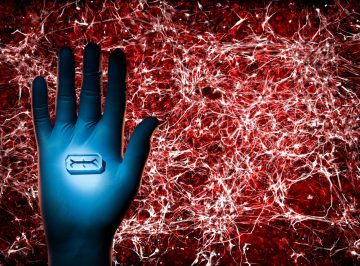Fran Smith in National Geographic:
 Precision medicine flips the script on conventional medicine, which typically offers blanket recommendations and prescribes treatments designed to help more people than they harm but that might not work for you. The approach recognizes that we each possess distinct molecular characteristics, and they have an outsize impact on our health. Around the world, researchers are creating precision tools unimaginable just a decade ago: superfast DNA sequencing, tissue engineering, cellular reprogramming, gene editing, and more. The science and technology soon will make it feasible to predict your risk of cancer, heart disease, and countless other ailments years before you get sick. The work also offers prospects—tantalizing or unnerving, depending on your point of view—for altering genes in embryos and eliminating inherited diseases.
Precision medicine flips the script on conventional medicine, which typically offers blanket recommendations and prescribes treatments designed to help more people than they harm but that might not work for you. The approach recognizes that we each possess distinct molecular characteristics, and they have an outsize impact on our health. Around the world, researchers are creating precision tools unimaginable just a decade ago: superfast DNA sequencing, tissue engineering, cellular reprogramming, gene editing, and more. The science and technology soon will make it feasible to predict your risk of cancer, heart disease, and countless other ailments years before you get sick. The work also offers prospects—tantalizing or unnerving, depending on your point of view—for altering genes in embryos and eliminating inherited diseases.
More immediately, the research points the way to customized therapies for the most recalcitrant cancers. Last spring, researchers at the National Cancer Institute reported the dramatic recovery of a woman with metastatic breast cancer, Judy Perkins, after an experimental therapy using her own immune cells to attack her tumors. The team, led by Steven Rosenberg, an immunotherapy pioneer, had sequenced her tumor’s DNA to analyze the mutations. The team also extracted a sampling of immune cells called tumor-infiltrating lymphocytes and tested them to see which ones recognized her tumor’s genetic defects. The scientists reproduced the winning lymphocytes by the billions and infused them into Perkins, along with a checkpoint inhibitor, pembrolizumab. More than two years later, Perkins, a retired engineer from Florida, shows no signs of cancer.
More here.
